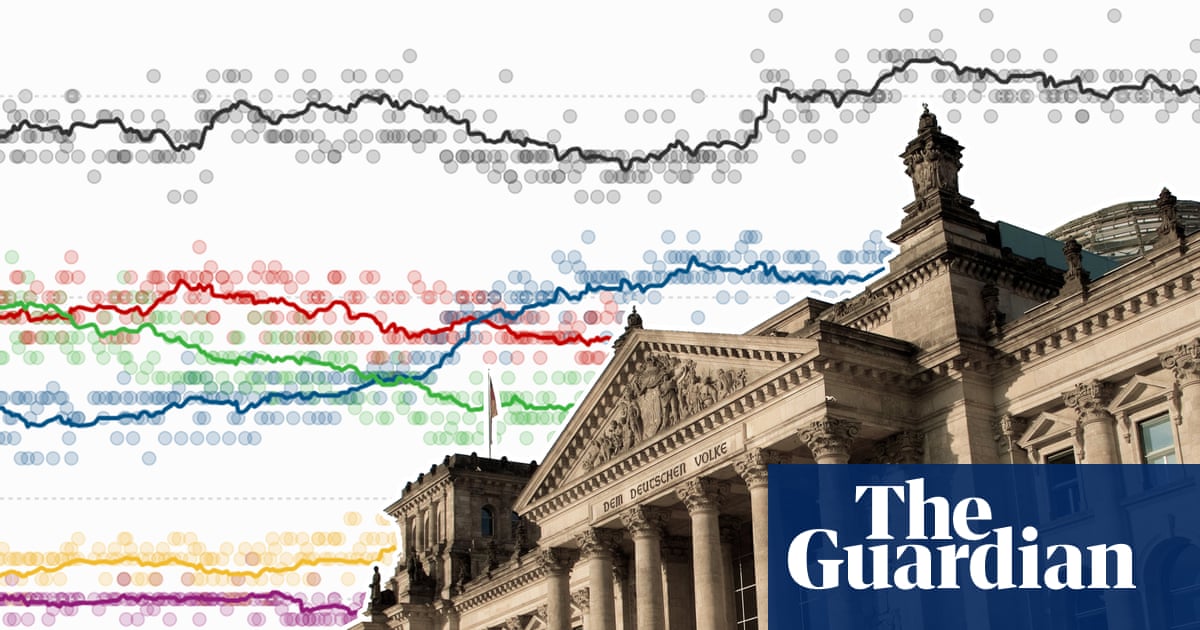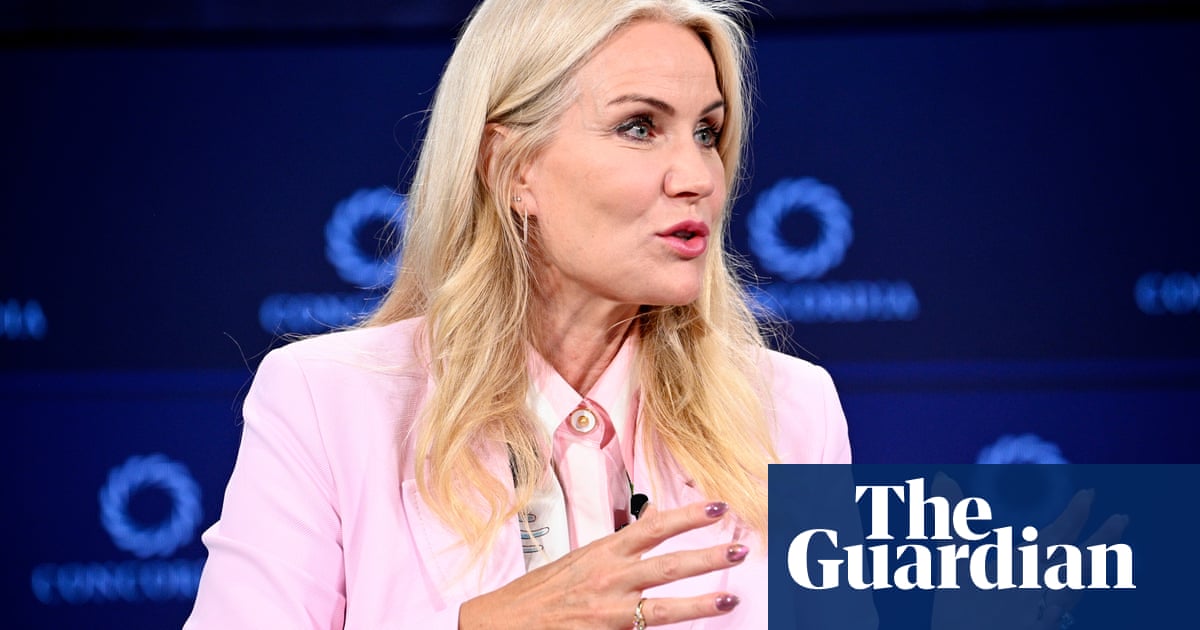
German election 2025 poll tracker: which party is leading and who could be chancellor?
Germany is preparing for a general election to the Bundestag, the lower house of its parliament, on 23 February, after its ?traffic-light? coalition of social democrats, liberals and greens collapsed. The country?s electoral system is highly proportional, so polls give a good indication of what shape of government might be possible after the election.
Latest German opinion polls 14-day rolling average % CDU/CSU SPD Gr?ne FDP AfD Linke Source: Guardian moving average of recent poll data from wahlrecht.de, last updated
Who?s who? Party profiles
SPD ? Social Democrats Olaf Scholz The SPD is the traditional centre-left force and Germany's oldest political party. After years of decline it recovered somewhat in 2021, enabling Olaf Scholz to become chancellor at the head of a "traffic-light" coalition of social democrats, liberals and Greens. CDU/CSU ? Christian Democrats Friedrich Merz The centre-right CDU and its sister party in Bavaria, the CSU, like to think of themselves ? not without cause ? as Germany's natural party of government, having led many of its postwar coalitions. They struggled to recover from Angela Merkel's withdrawal from politics, but have revived in the polls in recent years. Merz is a corporate lawyer. Die Gr?nen ? Greens Robert Habeck Germany's Greens are a more potent political force than similar parties in other countries. They have been part of Scholz's coalition in this parliament, with Habeck serving as economy minister and another prominent Green, Annalena Baerbock, as foreign minister. AfD ? Far-right nationalists Alice Weidel AfD ? Alternative f?r Deutschland (Alternative for Germany) is a far-right party which is opposed to immigration and European integration. It was founded in 2013 and has generally been moving to the right ever since. It first entered parliament in 2017. BSW - Sahra Wagenknecht Alliance Sahra Wagenknecht Sahra Wagenknecht is a former Linke politician who left to found her own party, which has for the moment eclipsed that of her former colleagues, and formed a breakaway group in parliament. FDP ? Liberals Christian Lindner The Free Democratic party, or FDP, is a smallish liberal pro-business party, less culturally conservative than the CDU and more laissez-faire on the economy than the SPD. Its leader, Christian Lindner, was finance minister under Scholz, until his sacking precipitated the collapse of the coalition. Die Linke ? The Left Jan Van Aken and Heidi Reichinnek Formed of remnants of the old East German communists and dissident Social Democrats disgruntled with the growing centrism of the SPD, Die Linke ? the Left ? is now a leftwing populist party with support concentrated in the eastern states.
Possible coalitions post-election
It is very unlikely that any party will have a majority in the Bundestag, so the parties and German voters will already be thinking about what coalitions might be possible. The two major centre-left and centre-right parties have served in Bundestag coalitions before, and coalitions featuring the Greens or FDP are not unusual. An important consideration is that a party?s share of seats in the Bundestag is usually slightly bigger than its share of votes overall, because parties which fail to cross a 5% national vote share ? with some exceptions ? don?t get seats, so the seats are distributed proportionally among the parties who do. These rough projections are therefore only a guide to what may be feasible.
Estimated % share of seats 50 Exclude: FDP Linke If a party fails to reach 5% of vote share, and wins fewer than three constituency seats, it is excluded from the Bundestag, and the share of votes won by other parties increases slightly. You can choose to see the projection without two major parties who may fail to reach 5% by clicking the buttons above.
The outgoing Bundestag
It?s clear from the makeup of the current chamber that Scholz?s government could not survive without the FDP, but would also have struggled to form any new coalition that did not include the conservative CDU/CSU. For their part, Friedrich Merz?s party had more to gain from new elections than from propping up the chancellor.






